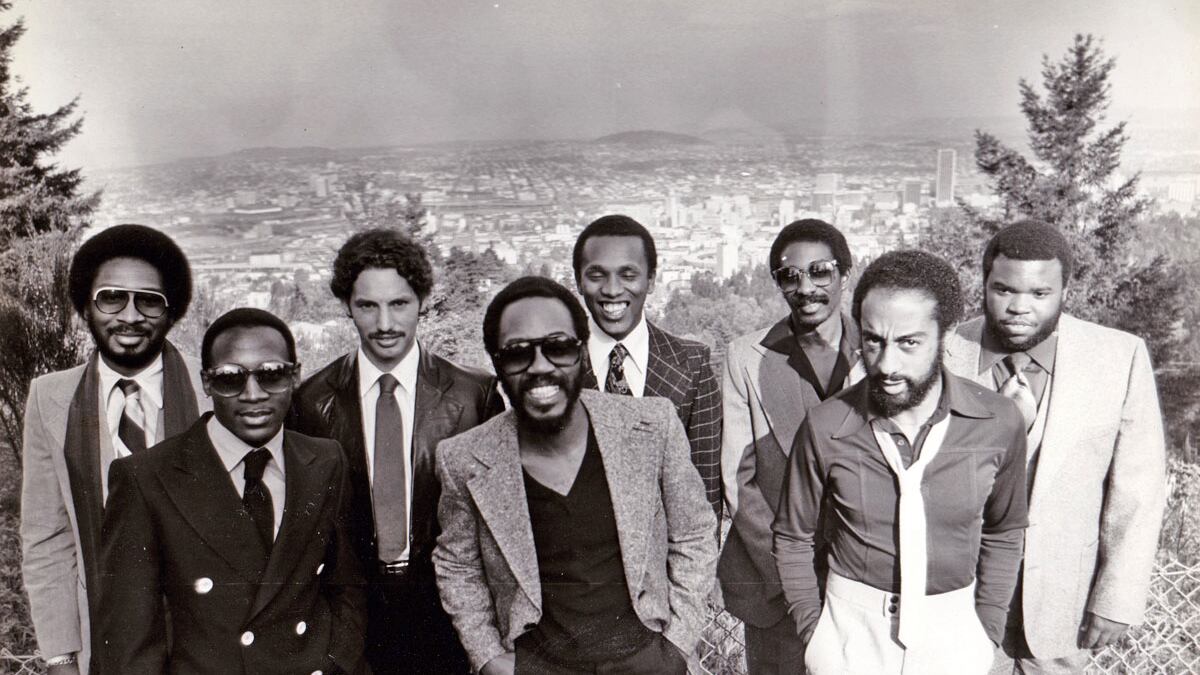Bobby Smith wants to save Portland's soul. Then he wants to give it a home.
But the first step in that process is reminding the city that it existed in the first place. An avid record collector, the 33-year-old DJ has spent the last decade digging deep into the history of the local R&B and funk scene. Indeed, it's been something of an archaeological mission. Unlike jazz, rock 'n' roll and other genres, the soul music that flourished in North Portland in the post-jazz era has largely been lost to time. Without much of a recording industry around to preserve it, by the end of the 1980s the music evaporated into memory, the details forgotten even by those who lived it.
"There are countless times when I'm talking to someone and they can't remember the name of their own band," Smith says. "Then I show them the record and all of it just comes right back."

Through interviews with his neighbors in the Albina neighborhood, Smith—an occasional WW contributor—has excavated hours of old recordings and thousands of photos, amassing what he calls "the ultimate scrapbook of PDX funk." Up to now, the main repository for that trove of lost music has been his XRAY.fm radio show, Night School.
Seeking a less ephemeral platform for bringing that history to the public, Smith has partnered with the African-American arts nonprofit World Arts Foundation to launch the Albina Music Trust, a project celebrating—and, in many ways, restoring—a significant piece of Portland's cultural heritage. The ultimate goal, he says, is to eventually find some kind of permanent residence for the archive, whether that ends up being a reissue label or an exhibit in a museum or library.
"It became more and more clear that this music and these stories needed to be returned to their home, so to speak, before they went on to take any life of their own," Smith says.
In the 1940s and '50s, Albina was a well-known hotbed for jazz, drawing major players like Duke Ellington and Cab Calloway to a cluster of venues on the Central Eastside. But after that, "the narrative just drops off," Smith says. In truth, black music—from soul to gospel, disco to boogie—continued to thrive even as the area gradually gentrified, in clubs and churches, parks and youth centers.
0 of 30
"The vitality of the community really revolved around a lot of unsung heroes," says Michael Grice, president of World Arts Foundation. "Jazz got a lot of recognition because of the great jazz musicians who came through here, but right next door to that were the R&B and funk artists who were generating their own without a lot of resources at that point."
A handful of success stories managed to survive beyond their moment. Pleasure and Shock scored minor hits that allowed them to tour outside the Northwest, and Nu Shooz came up through the R&B scene before "I Can't Wait" shot them onto the national radar. Ural Thomas played the Apollo, resettled in his old neighborhood, and has experienced a resurgence in recent years. But there are dozens, if not hundreds of other acts from that period that won't turn up in a Google search. A lack of access to downtown clubs kept many groups sequestered on the Eastside, and limited opportunities to record meant much of the music never escaped the time and place in which it was made.
See Related: Five Great Lost Portland Soul Bands.
But recordings do exist—they're just not easy to find. Smith has spent hours tracking down and remastering reel-to-reel and cassette tapes salvaged from engineers and small private press labels. Whatever form the Albina Music Trust winds up taking, he promises the music will eventually get released.
"Guys like me have been reissuing soul records for decades—go into a little town, find someone who made something a long time ago, put out 500 copies, and guys in Europe and Japan go gaga over this rare soul record they can now have," he says. "The difference here is we're engaging the community in the process. Right now, it's for Albina. I'd love to see where it goes from there."
SEE IT: The Albina Music Trust will have a booth at the 33rd annual Martin Luther King, Jr. Tribute at Highlands Christian Church, 7600 NE Glisan St., on Monday, Jan. 15. 11 am. See worldartsfoundation.org for more information.






























